Can Ohio State's Ryan Day stay as play-caller and still win a national championship?
Steve Spurrier was never one to lack in self-assurance in his coaching career.
It was evident in 1990 when he took the helm at Florida and continued calling plays for his offense.
Though on a bigger stage being at his alma mater in the Southeastern Conference, Spurrier gave no thought to mixing up his approach.
He had managed the dual role as both head coach and offensive play-caller at his previous stops at Duke and with the Tampa Bay Bandits in the United States Football League.
“That’s how I got the job,” Spurrier said. “It’s because our offenses were good.”
The "Head Ball Coach" was so resolute he didn’t even name an offensive coordinator over his 12 seasons at Florida, leaving little doubt about who was directing that side of the ball.
His fingerprints were all over the Gators’ offense, an innovative pass-happy scheme that became known as the "Fun ‘n’ Gun" and led them to their first national championship in 1996.
“If I went and hired an offensive coach,” Spurrier said, “what would I be there for? Just to give motivational talks?”
Spurrier is part of the small club of head coaches who have reached college football’s pinnacle in recent decades while calling a majority of the plays for either their offense or defense.
Over the past 30 years, only three others are believed to have done so — Tom Osborne at Nebraska in 1994, 1995 and 1997, Pete Carroll at Southern California in 2003 and 2004 and Jimbo Fisher at Florida State in 2013. No play-calling head coach has won it all in the College Football Playoff era.
It’s a trend worth pondering as Ohio State coach Ryan Day wrestles with whether to continue calling the plays for his offense this season or hand those duties off to Brian Hartline, the up-and-coming wide receivers coach who was promoted to offensive coordinator in January.
The decision promises to shape Day’s own attempt to take his program to the top of the sport.
Ryan Day's dilemma at Ohio State
Day has steered the Buckeyes’ offense since he arrived as an offensive coordinator in 2017, producing the highest-scoring seasons in program history.
But the juggling act has proven increasingly difficult.
The challenges of roster management resulting from the rising frequency of transfers and name, image and likeness issues have put more on the plate for head coaches across the Bowl Subdivision.
When Day first addressed his openness to ceding play-calling, he cited a desire to better manage his time. It’s an issue that especially arises late in the season when the weeks of game-planning add up and any coordinator can feel holed up in meetings. Day said he wants to ensure that he has “enough of a presence” extending throughout the Woody Hayes Athletic Center.
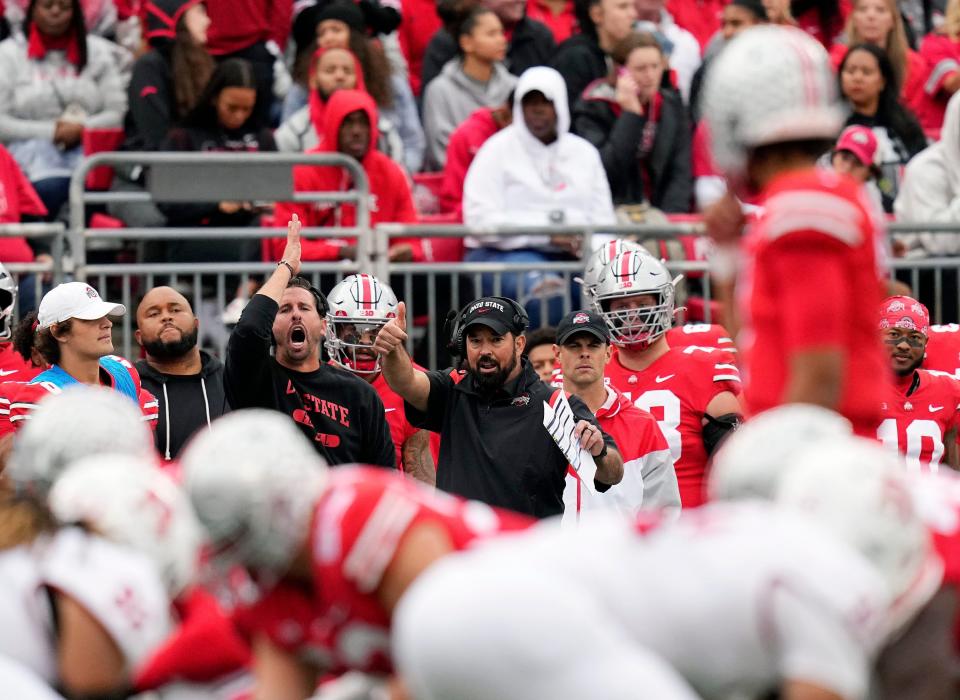
Among the four teams that reached the playoff last season, Ohio State was the only one with a head coach calling plays.
Michigan’s Jim Harbaugh called the offense himself earlier in his tenure in Ann Arbor, but began delegating the responsibility to his offensive coordinators in 2019.
“It’s a tremendous collaborative environment,” Harbaugh said.
Lincoln Riley, perhaps the most well-known play-calling head coach alongside Day, has gone three straight seasons without a playoff appearance, though he put USC on the cusp of the four-team postseason a year ago.
The demands on head coaches have grown so much that even Fisher, now entering his sixth season as the coach at Texas A&M, is looking to turn over play-calling.

Fisher in January hired former Arkansas and Louisville coach Bobby Petrino as his offensive coordinator. Last month, Fisher told reporters, “Hopefully he'll call the game and have suggestions.”
Rick Neuheisel, an analyst for CBS Sports and former coach of Colorado, UCLA and Washington, considered other factors for influencing Day and Fisher to take a hard look at their staff structure.
“What do those guys have in common? Their expectations have not been met in terms of their fan bases thinking they’re on to greatness,” Neuheisel said.
He pointed to the disappointment that resulted from Day’s consecutive losses to archrival Michigan and Fisher’s first losing season in College Station, a setback that came on the heels of being award a sizable contract extension the previous year. The Aggies went 5-7 last fall.
“You think you’re going to be a better head coach by handing off the responsibilities,” Neuheisel said. “Sometimes you’re handing off the responsibilities that got you the head coaching job. So there’s a fine line.”
Long hours for head coaches who call plays
The work weeks lasted 90 hours. Film of opposing defenses rolled at home after dinner.
For 25 years at Nebraska, Osborne maintained an unrelenting pace as he balanced the responsibilities of being a head coach with play-calling.
“You didn’t get a lot of sleep, that’s for sure,” Osborne said.
Midway through his tenure, it caught up with him.
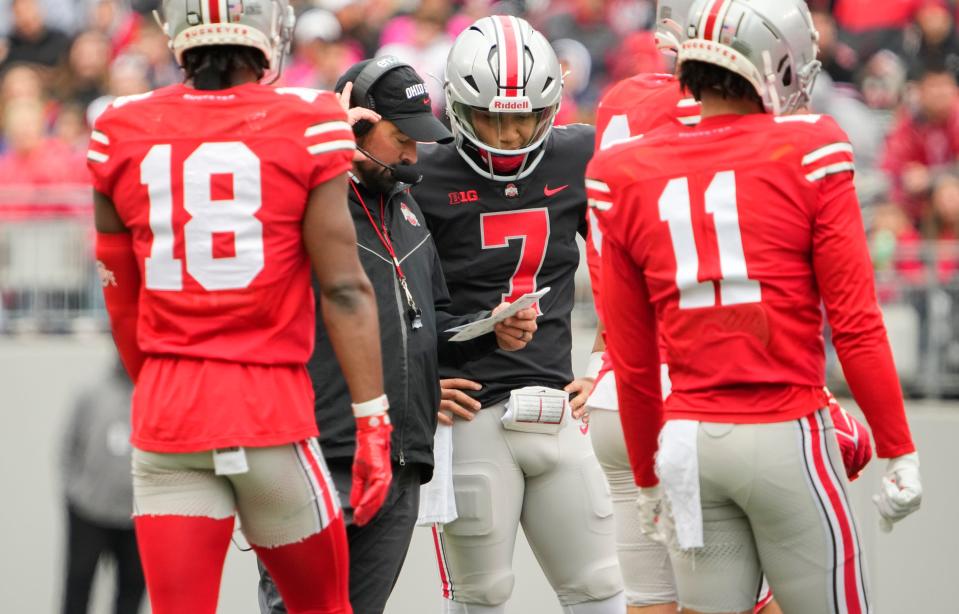
"I can't say I did it particularly well," Osborne said, "because I ended up with a double-bypass operation when I was 48."
The heart surgery in 1985 marked a turning point.
Osborne took steps to lighten his load, reducing events on his calendar. The Cornhuskers’ assistant coaches rotated in his place mingling with boosters at breakfasts and luncheons in Lincoln and Omaha and appearing on a weekly radio show.
He made other lifestyle changes to improve his health, from jogging a few miles after practice to meditating.
But relinquishing play-calling was never on the table.
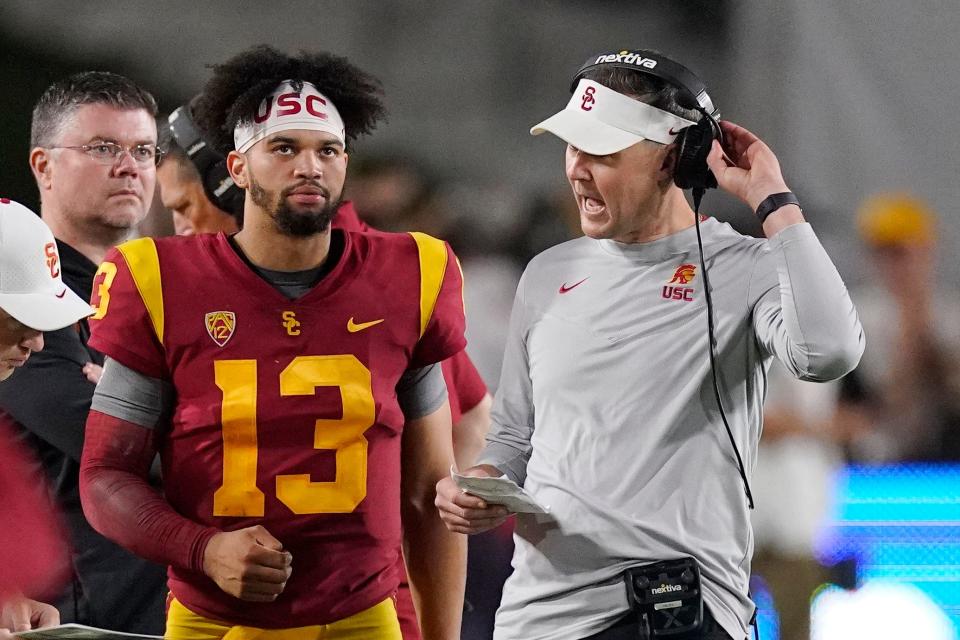
“It might have crossed my mind,” Osborne said, “but I didn’t feel like it would necessarily improve our situation, so I just continued to do it.”
Osborne relished in his role as a tactician and the challenge of matching wits with defensive coordinators across the Big Eight and later the Big 12.
“It’s a little bit like a chess game,” Osborne said, “because you’re always trying to anticipate what the other team is going to do and adjust.”
His roots were on the offensive side of the ball, as he was promoted to offensive coordinator in 1969 by his predecessor, Bob Devaney.
It was then that Osborne introduced an I-formation offense that became synonymous with the program for decades and led him to replace Devaney following his retirement in 1972.
He kept his play-calling duties.
“I naturally fell into it as I became a head coach,” Osborne said.
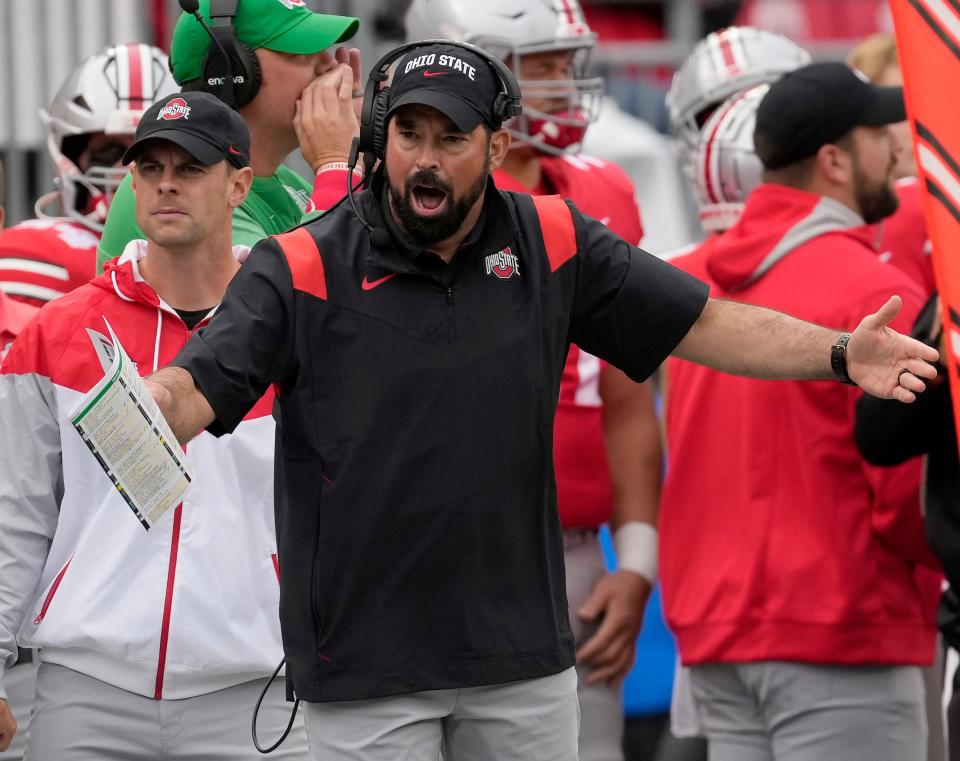
What's next for Ryan Day at Ohio State?
As Osborne and Spurrier offered their perspectives on calling plays as head coaches, they made sure to stress it wasn’t the only formula for success.
“Every coach has to feel their way along with what works for them,” Osborne said.
“There's all kinds of ways to do it,” Spurrier said.
So what should Day do?
Spurrier offered advice unprompted when told Day was looking at giving up play-calling.
“He's had too much success,” Spurrier said. “He doesn't need to do that.”
He empathized with Day in the aftermath of Ohio State's consecutive losses at the end of last season.
“Every time you lose a game, you sort of have that feeling that maybe there's a better way to do it,” Spurrier said, “but that's how he got the job. He was good at offense, calling plays, and I don't think they lost to Georgia because he called some bad plays.”
Indeed, the Buckeyes put up 41 points as they fell to the Bulldogs in their playoff semifinal, the most Georgia's formidable defense allowed in any game last season. Only one other team had even totaled 30 points against the national champions.
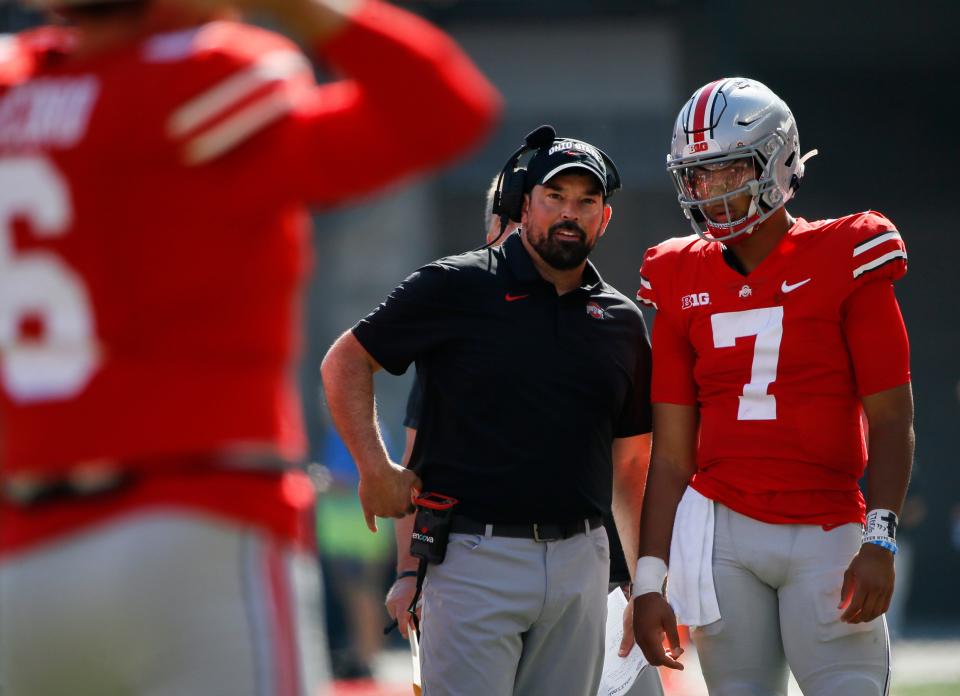
It isn’t clear where Day will ultimately land on this issue, which is to be settled in preseason training camp this month. He said last week that he had no update on how the dynamic might work when the season opens.
The likelihood is that he’ll still have some involvement in game-planning and calling plays on Saturdays.
“It’s not going to be a clean break,” Day said. “That’s not going to happen. But as things go along and the more comfortable we feel, then we’ll go from there.”
Finding that line and how much X’s and O’s to surrender remains a challenge.
“It won’t be easy for me to walk away from,” Day said.
Joey Kaufman covers Ohio State football for The Columbus Dispatch. Contact him at jkaufman@dispatch.com or on Twitter @joeyrkaufman.
Get more Ohio State football news by listening to our podcasts
This article originally appeared on The Columbus Dispatch: Can Ohio State's Ryan Day stay as play-caller and still win a national championship?

